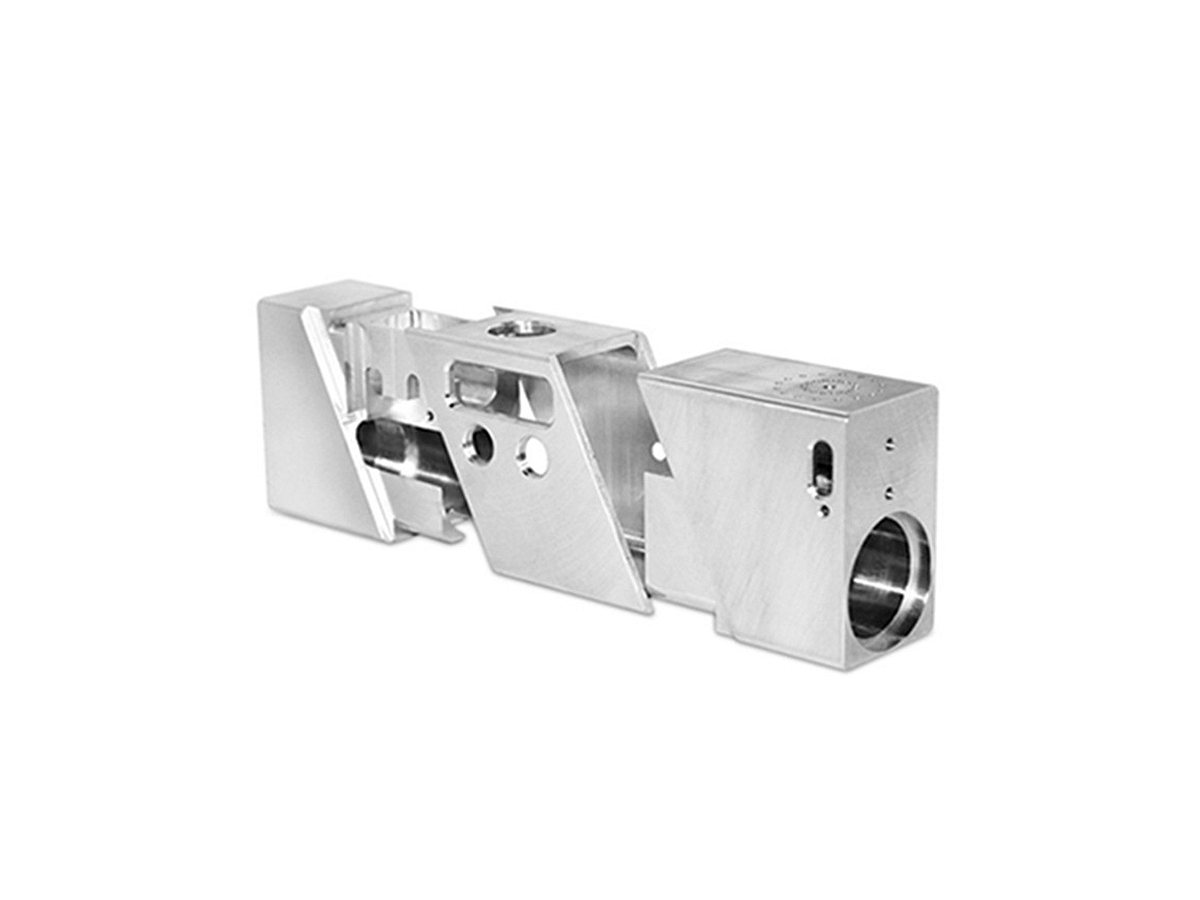Custom CNC Machining of Spring Steel for Durable Springs and Tool Components
Introduction to Custom CNC Machined Spring Steel in High-Durability Applications
Industries such as automotive, industrial equipment, and consumer products frequently require materials with exceptional elasticity, fatigue resistance, and durability. Spring steel, renowned for its high yield strength, flexibility, and toughness, is ideal for manufacturing durable springs, resilient tool components, and precision mechanical parts subjected to repetitive stress and impact. With custom CNC machining, spring steel components achieve intricate geometries, high dimensional precision, and consistent quality for maximum reliability.
Utilizing advanced CNC machining, manufacturers precisely fabricate custom spring steel components, providing excellent dimensional accuracy, intricate shaping, and superior surface quality to enhance the performance and lifespan of durable springs and tool components.
Comprehensive Analysis of Spring Steel for Durable Component Manufacturing
Comparative Performance of Spring Steel and Related Materials
Material | Tensile Strength (MPa) | Yield Strength (MPa) | Machinability | Typical Applications | Advantage |
|---|---|---|---|---|---|
1100-1800 | 900-1700 | Moderate | Springs, tool components | High elasticity, fatigue resistance | |
655-979 | 415-655 | Good | Heavy-duty components | High toughness, good machinability | |
620-720 | 380-500 | Good | Tool components, blades | Good hardness, moderate strength | |
750-950 | 550-750 | Moderate | Cutting tools, drill bits | Excellent wear resistance |
Strategic Material Selection for CNC Machined Spring Steel Components
Selecting spring steel for CNC machining involves evaluating factors such as elasticity, fatigue life, and operational durability:
Durable springs and resilient tool components requiring exceptional elasticity and resistance to fatigue (tensile strength 1100-1800 MPa, yield strength 900-1700 MPa) significantly benefit from the inherent properties of spring steel.
Heavy-duty tool components and machine parts requiring toughness and moderate machinability typically use 4140 steel for applications with lower elasticity requirements.
Tool components, cutting blades, or mechanical parts needing moderate strength (620-720 MPa) and good hardness often select 1060 steel.
For cutting tools and drill bits requiring exceptional wear resistance and edge retention, High-Speed Steel (HSS) is a preferred choice.
Precision CNC Machining Processes for Spring Steel Components
CNC Machining Process Performance Overview
CNC Machining Process | Dimensional Accuracy (mm) | Surface Roughness (Ra μm) | Typical Applications | Key Advantages |
|---|---|---|---|---|
±0.005-0.02 | 0.4-3.2 | Spring clips, precision tool parts | Versatile geometries | |
±0.005-0.01 | 0.4-1.6 | Cylindrical springs, shafts | Rotational precision, high-quality finish | |
±0.01-0.02 | 1.6-3.2 | Holes for tooling, spring mounting | Accurate positioning | |
±0.003-0.01 | 0.2-0.6 | Complex springs, custom tooling | Precise, intricate details |
Optimizing CNC Machining Processes for Spring Steel Components
Selecting the most appropriate CNC machining process involves assessing component complexity, dimensional accuracy, and surface finish:
Spring clips, complex tool components, and mechanical parts requiring intricate features and dimensional precision within ±0.005 mm benefit significantly from CNC Milling Service.
Cylindrical springs, precision shafts, and rotationally symmetric tool components demanding high accuracy (±0.005 mm) and superior finishes (Ra ≤1.6 µm) leverage CNC Turning Service.
Tool components or precision springs requiring accurately drilled mounting holes or fixtures within ±0.01 mm tolerance choose CNC Drilling Service for consistent assembly quality.
Complex spring components or intricate tooling parts needing extremely tight tolerances (±0.003 mm) and exceptional surface quality (Ra ≤0.6 µm) significantly benefit from Multi-Axis CNC Machining Service for superior precision.
Advanced Surface Treatments to Optimize Spring Steel Components
Surface Treatment Performance and Suitability
Treatment Method | Corrosion Resistance | Wear Resistance | Industrial Suitability | Typical Applications | Key Features |
|---|---|---|---|---|---|
Excellent (>1500 hrs ASTM B117) | High (HV500-700) | Excellent | Springs, tool components | Enhanced durability | |
Good | Moderate | Excellent | Clips, small springs | Economical, corrosion-resistant | |
Excellent (>1500 hrs ASTM B117) | High | Excellent | Visible spring components | Durable, aesthetic finish | |
Moderate | Very High | Excellent | High-stress springs, tools | Improved fatigue resistance |
Strategic Surface Treatment Selection for CNC Machined Spring Steel
Choosing the right surface treatment involves evaluating corrosion resistance, wear requirements, and operational durability:
Springs and critical tool components needing enhanced durability and corrosion resistance (≥1500 hours ASTM B117) utilize Electroplating for long-lasting protection and hardness.
Smaller springs, clips, and tool parts needing economical protection and improved aesthetics commonly select Black Oxide Coating.
Visible spring parts or structural tool components requiring a durable, corrosion-resistant finish benefit from Powder Coating.
High-stress springs or tool components that must resist fatigue and wear effectively use Heat Treatment processes to improve mechanical strength and longevity.
Rigorous Quality Assurance for CNC Machined Spring Steel Parts
Detailed Quality Control Practices
Quality assurance for CNC machined spring steel components involves:
Dimensional Inspection: Coordinate Measuring Machines (CMM) confirm compliance with tolerances (±0.003 mm to ±0.01 mm).
Surface Finish Testing: Profilometers verify specified surface roughness (Ra 0.2-3.2 µm).
Mechanical Property Testing: Tests of ASTM-standard tensile (ASTM E8), yield, and hardness (Rockwell C) confirm material integrity.
Corrosion Resistance Testing: ASTM B117 salt spray testing ensures long-term protection (≥1000 hours).
Non-Destructive Testing (NDT): Ultrasonic and magnetic particle inspections detect defects and ensure reliability.
Comprehensive Documentation: ISO 9001-compliant records provide full traceability and regulatory compliance.
Key Applications of CNC Machined Spring Steel Components
Durable springs and clips.
High-resilience tool components.
Automotive and industrial spring components.
Custom precision mechanical parts.
Related FAQs:
Why choose spring steel for durable CNC machined springs and tools?
What CNC machining processes are best for spring steel components?
Which surface treatments effectively enhance CNC machined spring steel durability?
How does CNC machining improve precision in spring steel components?
Which industries commonly use CNC machined spring steel parts?

